Selecting the right end-dump trailer comes down to understanding how aluminum and steel construction affect weight, durability, payload efficiency, and long-term operating cost. This guide gives you a clear, practical comparison so you can make the correct investment for your hauling operation.
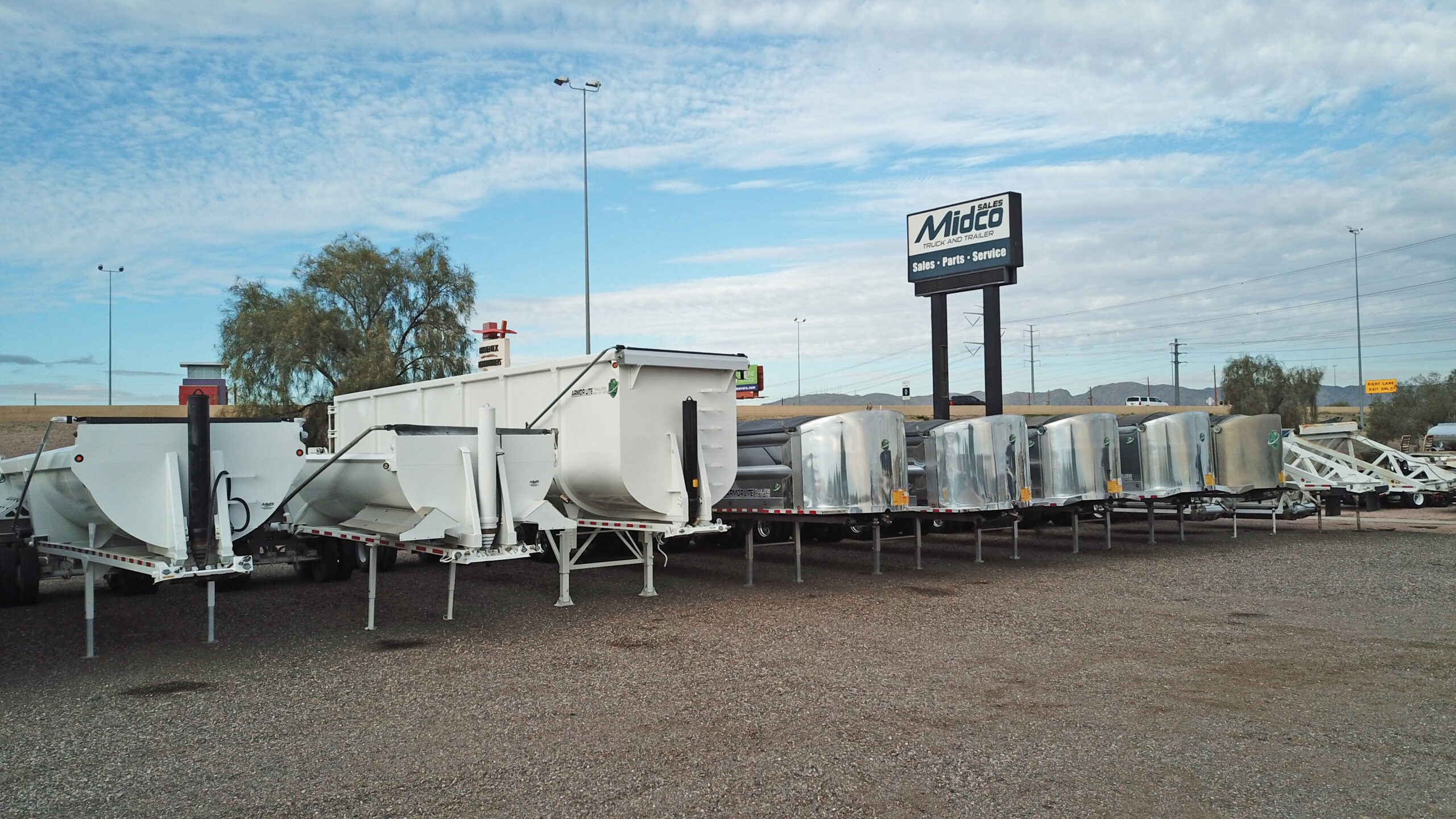
What Is an End Dump Trailer?
An end-dump trailer uses a hydraulic system to lift the front of the trailer, allowing material to dump out through the tailgate. They’re common in construction, aggregates, demolition, landscaping, scrap metal, and other bulk-material applications. Body material—aluminum or steel—is one of the biggest factors in performance.
Aluminum End Dump Trailers
Aluminum end dumps are designed for maximum payload and corrosion resistance. They’re ideal for operations where weight reduction directly impacts revenue.
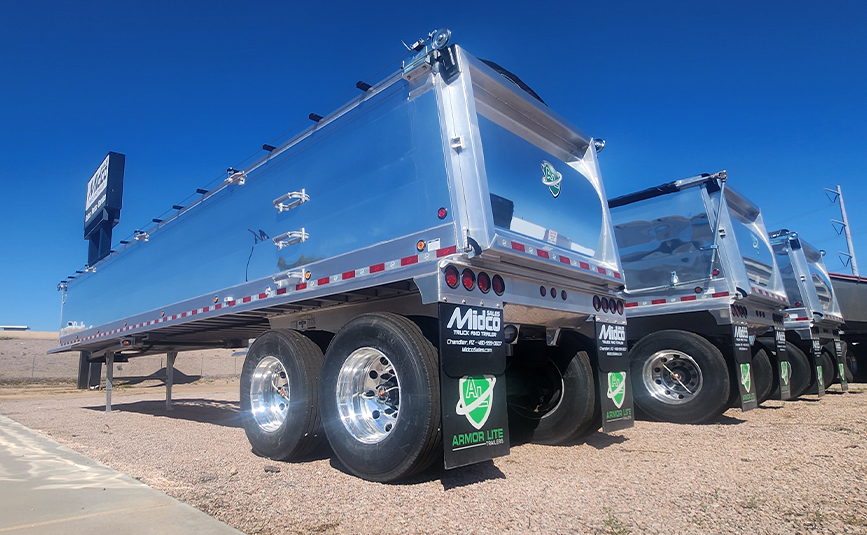
Advantages
-
Higher payload capacity: Aluminum is significantly lighter, allowing you to haul more material per load.
-
Corrosion-resistant: Excellent for environments with moisture, aggregates, or corrosive materials.
-
Better resale value: Lighter trailers retain value longer.
-
Lower fuel burn: Reduced trailer weight means better efficiency over time.
Disadvantages
-
Higher upfront cost: Expect to pay more than steel equivalent models.
-
Less impact resistance: Aluminum bodies can fatigue or crack if repeatedly subjected to heavy demolition materials or oversized debris.
-
More sensitive to twisting loads: Not ideal for uneven dump sites where torsional stress is high.
Steel End Dump Trailers
Steel end dumps are built for abuse and excel in demanding work environments.
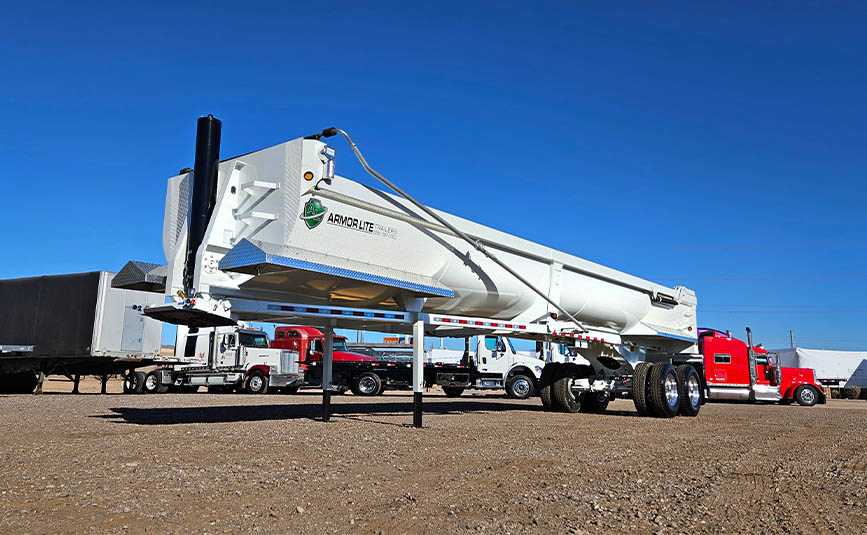
Advantages
-
Maximum durability: Steel handles impacts, boulders, demolition debris, and rough jobsite conditions better.
-
Lower purchase price: Steel is generally less expensive up front.
-
Strong structural rigidity: More forgiving in uneven terrain and aggressive dump cycles.
Disadvantages
-
Heavier tare weight: Reduced payload capacity compared to aluminum.
-
Corrosion risk: Requires regular maintenance to prevent rust.
-
Lower resale value: Wear, rust, and added weight reduce long-term market value.
Cost Considerations
When comparing cost, consider the entire lifecycle—not just the purchase price.
Upfront Cost
-
Aluminum: Higher
-
Steel: Lower
Operating Costs
-
Aluminum: Lower fuel consumption, higher payload earnings
-
Steel: Higher fuel use due to weight, lower payload potential
Maintenance Cost
-
Aluminum: Lower corrosion concerns
-
Steel: Requires ongoing rust management
Resale Value
-
Aluminum: Strong
-
Steel: Moderate
If your operation is heavily volume-dependent, aluminum often pays for itself through greater payload revenue.
Which Material Fits Your Application?
Your decision should follow the material you haul, the terrain you operate in, and how often you cycle loads.
Choose Aluminum If You Haul:
-
Aggregates
-
Sand and gravel
-
Asphalt
-
Agricultural commodities
-
Non-abrasive bulk materials
Best for: Maximizing payload, long-distance hauling, and improving fuel efficiency.
Choose Steel If You Haul:
-
Demolition debris
-
Rip-rap
-
Boulders or oversized materials
-
Scrap metal
-
Rough or irregular loads
Best for: Heavy-duty abuse, short-haul applications, and tough jobsite conditions.
Tailgate, Floor, and Body Design Differences
Material choice is one factor — but body design also matters.
Aluminum Bodies
-
Smooth interior walls
-
Thinner but reinforced floor panels
-
Often paired with lightweight high-lift tailgates
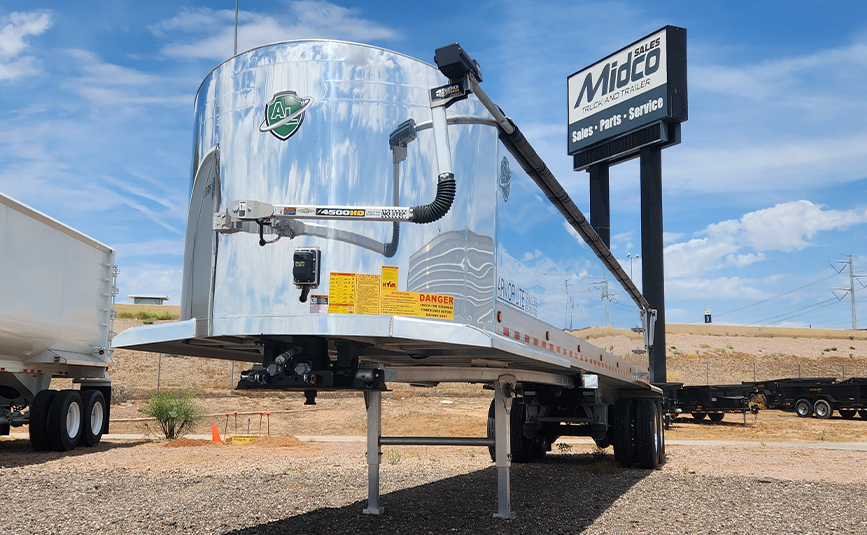
Steel Bodies
-
Thicker floors and sidewalls
-
Square or half-round profiles for impact resistance
-
Heavy-duty barn-door or demolition tailgates
The right combination depends on your freight mix and frequency of loading/unloading.
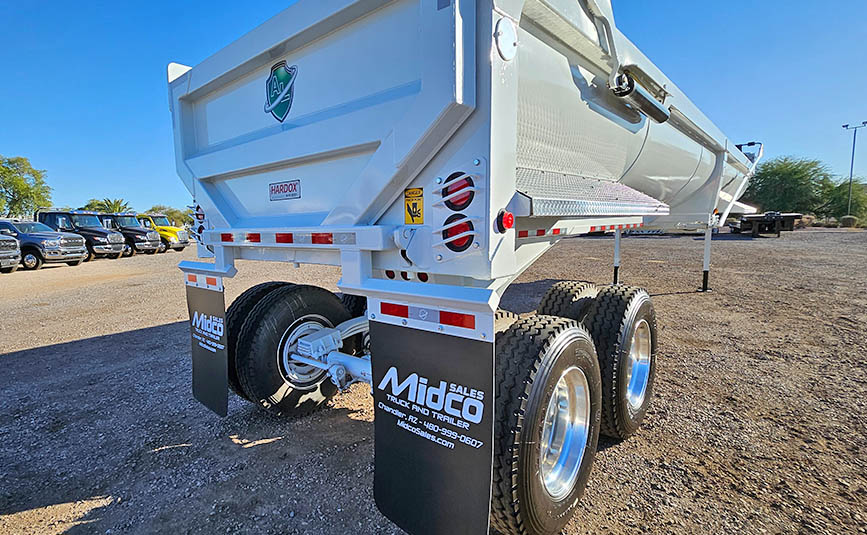
Weight, Capacity, and DOT Compliance
Lighter trailers give you more flexibility meeting axle weight limits. If you regularly push maximum legal capacity, aluminum creates a margin of safety — or additional revenue.
Steel units reduce payload and may increase the chance of overweight axles unless properly spec’d.
Which One Should You Choose?
If your priority is maximum payload, fuel efficiency, and long-term ROI, choose aluminum.
If your priority is maximum durability, handling abusive materials, and lower upfront cost, choose steel.
For most mixed-material operations, fleets often run both.
Browse Aluminum and Steel End Dump Trailers at Midco Sales
Midco Sales stocks a rotating selection of steel and aluminum end dump trailers from leading manufacturers, including Armor Lite trailers.
If you need guidance choosing the right configuration for your hauling operation, we’ll walk you through specs, capacity, materials, and application fit.
Our dealership is located in Chandler, AZ, just outside of Phoenix. We serve the Arizona and southwest US market. We also offer nationwide delivery on all end dump trailers.
Midco Sales
1200 S. Akimel Ln, Chandler, AZ (map)
(480) 999-0607





